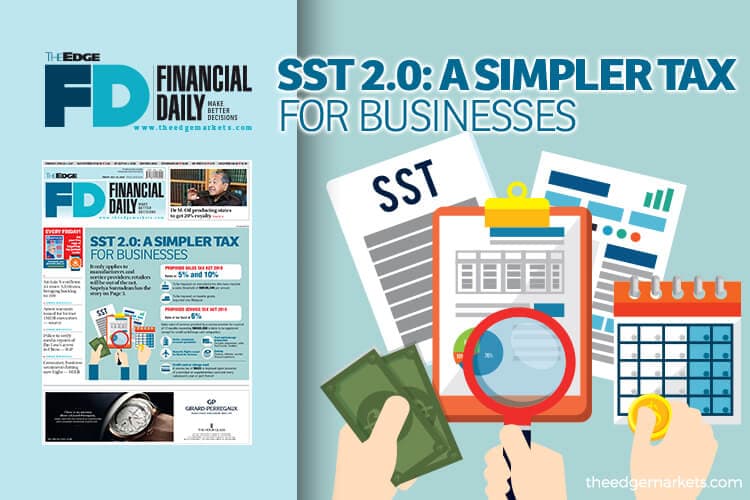
This article first appeared in The Edge Financial Daily on July 20, 2018
KUALA LUMPUR: The new sales tax and service tax, dubbed SST 2.0, will be much simpler for businesses as compared with the goods and services tax (GST) and the old SST framework that preceded the GST, says the Royal Malaysian Customs Department.
Unlike the manual submissions under the old SST regime, businesses can do SST filing online, its director-general Datuk Seri Subromaniam Tholasy said yesterday.
“SST filing and payment will be done electronically, as opposed to manual filing [under the old SST]. We are coming out with a new system [for SST filing] which we are confident of rolling out next month.
“For example, under the old SST, if manufacturers want to apply for exemption, they need to come and submit so many forms; it is an additional cost to the manufacturers. Now exemptions have been simplified. All they need to do is apply through the system,” he said at a SST implementation briefing session organised by Customs.
“SST is also much more simple than GST, but of course there will be challenges and issues. Compared to GST, in SST 2.0 we are only catching the manufacturers and service providers. All the retailers will be out of the net — there is no filing cost and compliance cost for them,” he added.
On whether there would be additional costs for businesses that had invested in GST software during the GST regime and would now need to switch back to SST in their day-to-day invoicing, Subromaniam said this would not be significant as they would be able to modify their existing GST systems.
“They can make use of the present systems they have. They would probably just need to modify it a little. They can make use of the GST system for their own billing,” he said.
While the GST had encompassed 472,000 registered businesses, the SST 2.0 is expected to register less than 100,000 businesses.
The customs department will kick off a “hand-holding” programme nationwide on July 24 to help industry players with the transition to SST 2.0
“This will include engagement with the industry on issues such as invoicing, issuance of debit notes, credit notes and other technical issues, to prepare them towards a successful implementation of SST 2.0,” said Subromaniam.